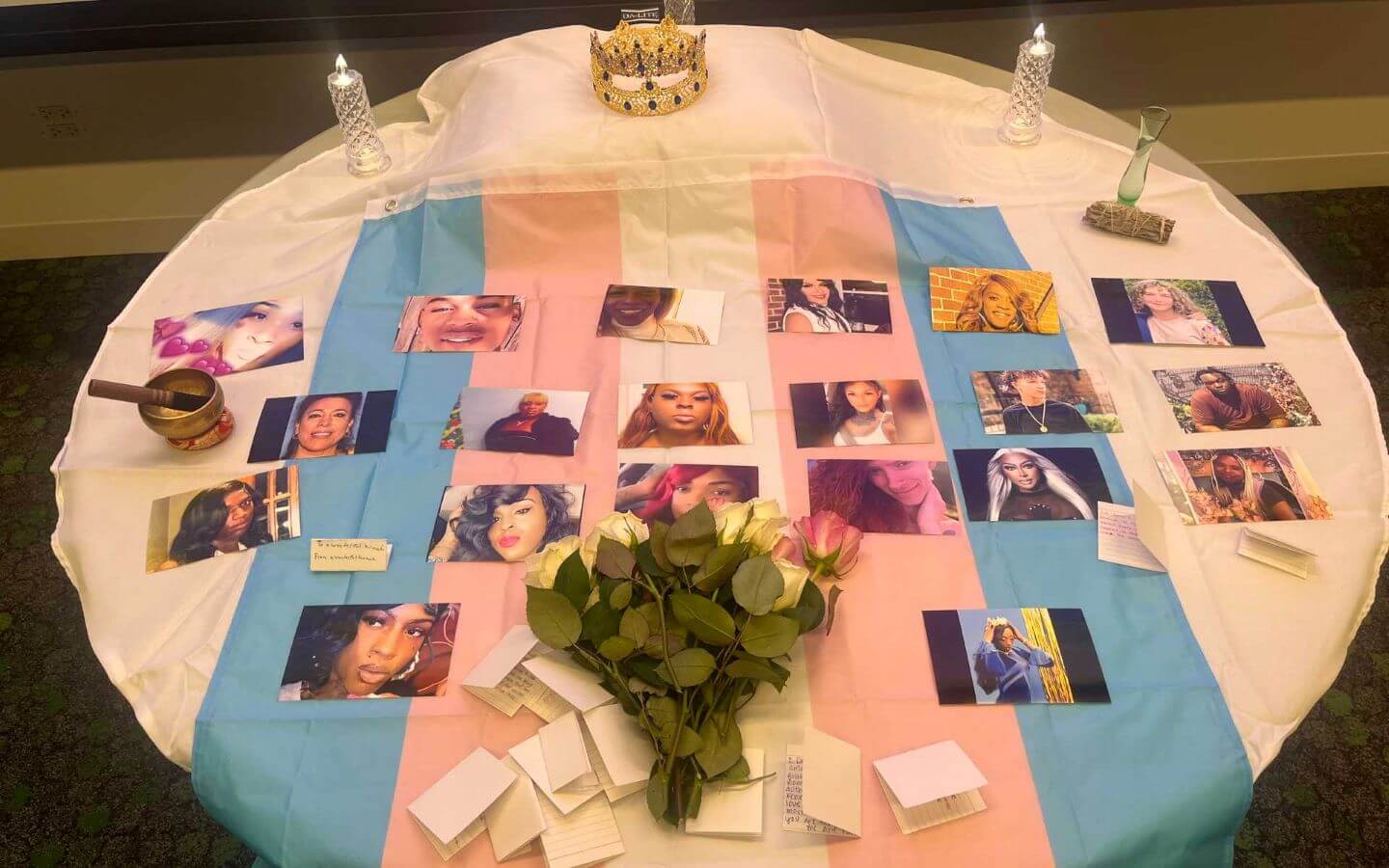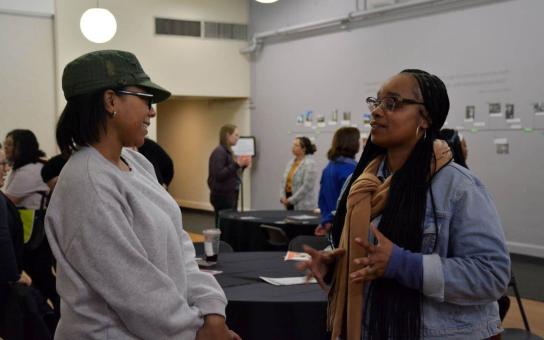
Roosevelt honored the lives lost to anti-transgender violence at the University’s 2nd Annual Transgender Day of Remembrance (TDOR). Hosted by RU Proud in coordination with SPEED and the Center for Student Engagement and Intercultural Experiences (SEIE), the event reflected on the lives taken too soon due to anti-trans violence and encouraged attendees to become advocates for transgender rights in the United States.
TDOR was first established in 1999 by transgender advocate Gwendolyn Ann Smith as a vigil to honor the memory of Rita Hester, a transgender woman who was killed in 1998. Since its creation 25 years ago, the day is spent remembering lives that have passed on while also envisioning a future free of prejudice with healthcare accessibility for all who need it.
The ceremony was facilitated by Dee Dee Watters, a Houston-based activist and death doula who works directly with the friends of recently passed trans individuals to ensure that funeral arrangements and final requests are handled respectively if the individual was murdered or estranged from their family. Before the formal ceremony began, Watters described the motivation for her work and how Roosevelt students could become advocates themselves for trans rights.
“The demographic with the single-shortest lifespan in the United States is Black trans women at only 35 years old,” she said. “There are so many systemic prejudices in our current institutions that cannot fathom the rich spectrum of race and gender, and so many end-of-life cases I’ve worked with have been targets of violence or health care providers who are not equipped to assist us. And yet, you even attending this event is a form of radical acknowledgement and gives a stronger voice to these individuals’ memories.”
After dimming the lights, Watters led a ceremony that included meditation periods, readings from trans poets and the “reading of the names” where attendees symbolically affirmed the deceased individuals’ true names instead of the ones assigned to them at birth. Students also wrote short letters of gratitude and placed them on an altar that included photographs of the remembered, candles, roses and a small vessel of water to symbolize life. The ceremony concluded with a crowning ceremony, where two crowns associated with kings (masculine) and queens (feminine) where placed inside each other to symbolize the fluidity of gender expression and the royal bearing of the deceased.
At the conclusion of the event, Watters thanked attendees and reminded them that the cause for transgender equality in the United States has only begun. “I hope this day reminds us of the urgent work that we must continue, and that's to fight for justice and create a world where all trans, and gender-diverse individuals can live freely, safely and authentically,” she said. “Let us leave here tonight not in despair, but in determination.”


